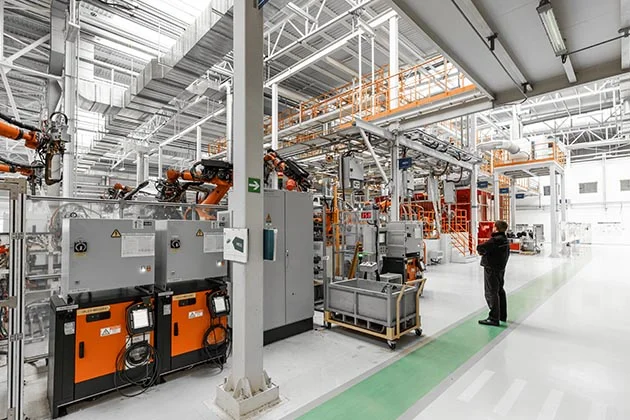In the age of advanced digitalization and cut-throat competition, manufacturing industries find themselves struggling to build and strengthen their competitive advantage by digitalizing their operations. Technologies such as the industrial internet of things (IIoT), artificial intelligence, machine learning, cloud and edge computing, and advanced data analytics are some of the indispensable tools that can help manufacturers attain the necessary operational efficiency based on insights that are data-driven and are based on real-time. Digital transformation will not only help the manufacturing industry in improving its productivity and quality but also ensure work safety, minimize energy use, and increase organizational sustainability. Thus, organizational digitalization is not just a trend, it is a strategic imperative. However, most organizations find themselves teetering on the edge of transformation. They do sense an urgency to move ahead but the cloud of doubts makes it difficult for them to make the right choices and decisions. Well, here are a few identified challenges that manufacturing industries face when it comes to digital transformation. Understanding these challenges will help the manufacturing industry to face those challenges a little more smoothly, make the right decisions, and embrace digital transformation for their own organization.
The Cost of Initial Investments
Digital transformation can cost a fortune and organizations may not always have the financial capabilities to invest in new technologies. This is the reason most organizations are struggling to cope with the competition and move ahead in the era of digitalization. However, considering the big picture, not having the digital advantage can be more devastating. What manufacturers need is to have an investment plan and a few effective strategies to focus on the ROI. They must know where to invest, when to invest, and how much to invest. With a planned investment, the digital transformation can lead to ROI such as improved operational efficiency and agility, reduction in downtime, increase in profitability and revenue, and the ability to predict and adjust to the facility and supply changes better. One of the most effective solutions that manufacturers can implement is using cloud-based software and cost-effective hardware or Internet of Things sensors that can predict the maintenance required and measure the ROI. An unplanned investment in digital transformation will only surge the cost without any ROI. Therefore, it is better to plan the investment rather than squander money struggling to compete with the competitors.
Cybersecurity Challenges
The challenges of cybersecurity are one of the most consequential problems that the manufacturing industry can face which can hinder organizational growth in terms of digital transformation. This is why having a plan that includes cybersecurity is crucial for the organizational safety of the manufacturing industry. Cybersecurity not only allows manufacturers to identify the current problems and solve them but also the ability to manage future risks. Research identifies that more than 60% of manufacturers face cybersecurity issues at least once, out of which 43% of manufacturers face system outages that last for more than 4 days. To mitigate the issue of cybersecurity, manufacturers must set foundations or a roadmap on how the company would identify and address the risks of cybersecurity. This will allow the manufacturers to protect the critical information by mapping out how the information flows through the organization and determining the severity of the risk if the information gets lost or compromised.
Lack of Digital Expertise
Being a digitally advanced organization in the face of stringent competition is a challenge most manufacturing industries face. This is due to the lack of knowledge and understanding of the right technologies that the industry requires. Investing in digital transformation alone would not make any difference until manufacturers understand how to leverage those technologies. Artificial Intelligence, Machine Learning, Automation, and cloud computing are some of the tools that can transform the manufacturing industry provided they are used in the most proper way or else they can hold back the progress of the organization. There are various consultancies that can help and guide the manufacturing industries in their journey of digital transformation.
Inflexible Legacy Infrastructure/Employee Pushback and Resistance
Organizational infrastructure is closely related to the implementation of digital technology and the ROI. Along with investing in digital transformation, manufacturers will also have to make certain changes to the infrastructure of their organization starting with employee training. Organizations that are rigid to change management reflect a workforce that is not ready to accept new changes. Resistance from the employees can be a major pullback from being a digitally advanced organization. Therefore, manufacturers must focus on investing in digital technologies along with modifying their infrastructure to maximize their ROI.










